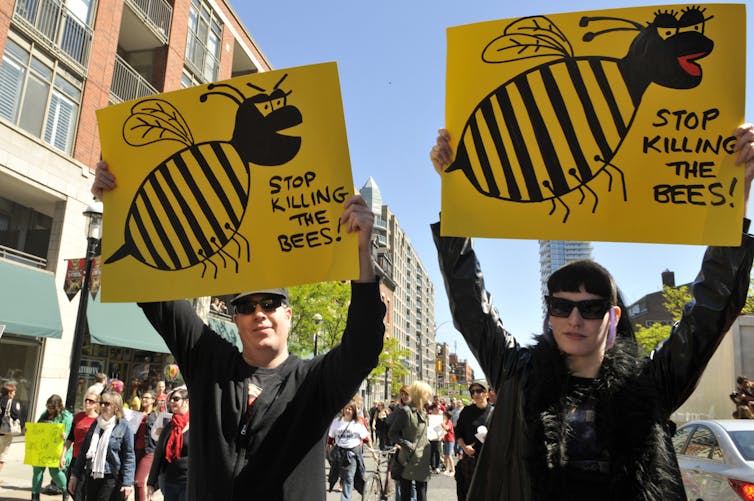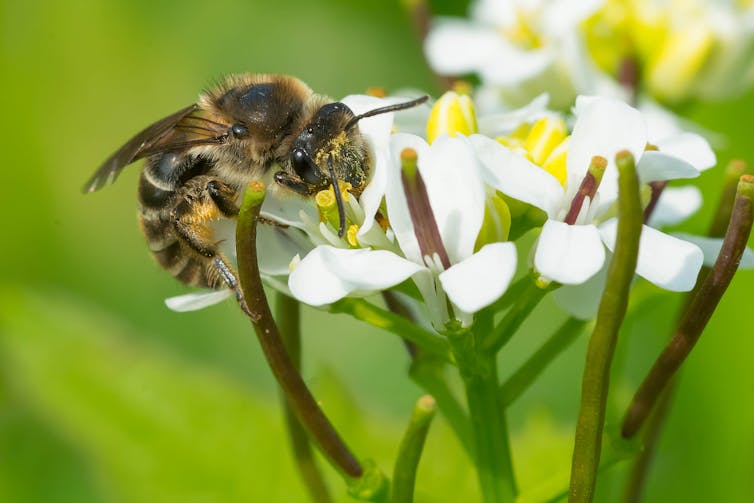Broghammer is one of two STI case managers at Oyate Health finding and treating people who have syphilis. The organization is one of several working to address the epidemic in South Dakota through collaborative partnerships.
COVID-19 ‘completely overwhelmed’ screening
Syphilis is a bacterial infection most often spread through sex that can be cured, but can cause serious health problems without treatment and can be spread from mothers to unborn babies.
South Dakota experienced a 2,493% increase in adult syphilis cases from the five-year median in 2022, according to the
state Department of Health, with 1,504 cases reported — the highest rate of syphilis cases in the country at the time. That was a 90% increase from 2021.
The number of syphilis cases in the state dropped in 2023 to 1,374 cases, according to the state’s
infectious disease dashboard.
Syphilis cases are down by 335 cases in the first quarter of this year compared to 2023, according to a state Department of Health spokesperson.
The state had the
second highest rate of congenital syphilis in the country in 2022 with 40 cases, which is 351.8 cases per 100,000 births, and was a 150% year-over-year increase. The state saw a 1,233% increase in congenital syphilis among infants from the five-year median in 2022.
The state reported 54 congenital syphilis cases in 2023 and 18 through April of that year. So far this year, there have been nine reported cases.
A cooler is filled with doses of penicillin on April 24, 2024, at the Oyate Health Center in Rapid City. (Seth Tupper/South Dakota Searchlight)
Syphilis was
close to being eradicated in the United States in the 1990s, but cases in South Dakota were increasing in the years prior to the COVID-19 pandemic. Syphilis infections nationwide have climbed rapidly in recent years, reaching a 70-year high in 2022, according to the most recent data from the Centers for Disease Control and Prevention. That rise comes amid a shortage of penicillin, the most effective treatment, due to the nationwide increase in syphilis cases. The shortage is predicted to last until the end of this year.
Hospitals were overwhelmed with treating the coronavirus in 2020 and 2021 and patients were hesitant to get screened or treated for STIs, said Meghan Curry O’Connell, a member of the Cherokee Nation and chief public health officer at the Great Plains Tribal Leaders’ Health Board in Rapid City.
“The whole system we have to make sure people are screened and treated for STIs was completely overwhelmed by COVID, like everything else,” said Curry O’Connell, who is a family physician by training. “Particularly in South Dakota, added challenges included difficulty in accessing care in very rural areas, which compounded the impacts of the pandemic.”
Native American communities hit hardest
Native American communities have been hit the hardest by the epidemic in South Dakota and nationally. About 90% of congenital syphilis cases in South Dakota are among Indigenous babies,
according to the state Health Department.
Syphilis causes a range of symptoms, including rashes, sores and hair loss. But if the disease isn’t treated, symptoms may go away even though the infection remains, making it a prolific spreader unless sexually active people are educated on the disease, practice safe sex and are regularly tested, Curry O’Connell said.
The disease can potentially persist for decades if untreated, which can lead to death. If pregnant people are infected, it poses a dangerous risk to their baby; congenital syphilis can cause bone deformities, severe anemia, jaundice, meningitis and even death. In 2022, the
CDC recorded 231 stillbirths and 51 infant deaths caused by syphilis nationally, out of 3,761 congenital syphilis cases reported that year.
The Great Plains Tribal Leaders’ Health Board and tribal leaders from North Dakota, South Dakota, Nebraska and Iowa
have asked the federal Department of Health and Human Services to declare a public health emergency in their states. A declaration would expand staffing, funding, and access to contact tracing data across their region.
“It’s important to get treated, because we want to prevent any of those outcomes, and it’s just so easy for people to do,” Curry O’Connell said. “Most people just need one shot of penicillin if newly infected.”
The rate of congenital syphilis infections among Native Americans (
644.7 cases per 100,000 people in 2022) is comparable to what the rate for the entire U.S. population was in 1941 (651.1) before doctors began using penicillin to cure syphilis, according to KFF Health News.
The risk is especially high for people with limited access to health care.
“If you’re putting off care or don’t have a regular relationship with a doctor, those people are more likely to go untreated,” Curry O’Connell said. “For whatever reason or barrier — if a person can’t get time off of work, they have a distance to travel, they don’t have immediate transportation or anything — it could end up that the symptom goes away.”
How SD entities are addressing the epidemic
Broghammer’s position is funded by a grant from the Indian Health Service. His “boots on the ground” method is the most effective way to treat patients, though it’s also a “grind,” Broghammer said.
Whether due to homelessness, financial or privacy concerns, many patients struggle to find their way to Oyate Health on the west side of Rapid City, Broghammer said. He’ll meet patients anywhere: their home, hotels or even in parking lots.
“Some days I’ll get five to six phone calls reaching out to us, which is great. Other days we’re picking up the phone and trying to locate people but might not find anybody,” Broghammer said. “It’s not just as simple as a phone call and meeting with them. We have a decent sized population of houseless relatives where it’s difficult to find them — no phone or address. Sometimes we literally have nothing to go off of.”
Some other health care systems will test for syphilis but won’t go to the patient’s location.
“Underlying all of this is it’s very resource intensive, especially in rural areas,” Curry O’Connell said. “However, there’s not anything we know of yet that can replace it. Boots on the ground, going out to talk to people, giving testing and doing what needs to be done is just basic public health work, and there’s nothing else that really works better.”
Some tribes and Indian Health Service locations are also sending nurses across South Dakota reservations to find and treat people. The state Department of Health plans to launch its Wellness on Wheels program in May, with five vans traveling across the state to provide basic health care to rural communities — including STI testing, treatment, education, counseling and referrals to community resources.
The vans will also provide pregnancy care services, safe sleep guidance and developmental screening for children, WIC services, maternal depression screening, immunizations and oral health.
“We hope to use these vans several times a week to reach clients who might not have access to one of our physical locations,” said Tia Kafke, media spokesperson for the department, in an emailed statement. “The vans will operate in the winter as much as possible, weather permitting.”
The state, tribes and tribal health board have monthly meetings about syphilis, Curry O’Connell said. IHS recommends every patient age 16 and older be screened for syphilis at least once a year. Pregnant patients should be screened three times during their pregnancy.
Broghammer often receives calls from the state Department of Health with leads on people who tested positive for syphilis.
“They save me time and energy, so I know they’re working their tails off,” Broghammer said.
The state department started piloting a rapid testing partnership with a health care provider in Mission, on the Rosebud Reservation, in December. Fifty patients were tested in the first three months with eight testing positive and being treated for the disease.
The move to rapid testing is an important development, professionals agree, because patients are able to be treated immediately rather than days or weeks later when results come in from laboratories. The department has seven normal testing centers across the state.
The number of syphilis cases in South Dakota has decreased since it peaked in 2022, though it’s still at epidemic levels. Congenital syphilis is only prevented by treating pregnant females. The number of congenital syphilis cases in South Dakota increased from 2022 to 2023.
Prenatal care, intervention key to addressing congenital syphilis
Though Broghammer sees the collaborations’ effect, he said there could be more entities working together in the state to put more boots on the ground.
Curry O’Connell said more effort is needed to test pregnant patients who aren’t receiving prenatal care. Nearly one-third of congenital syphilis cases in the first half of 2023 did not receive prenatal care,
according to the state.
Most women still will interact with the health care system at some point during their pregnancy, even if they don’t receive prenatal care. They should be screened with a rapid test at that point, Curry O’Connell said.
“If someone goes into urgent care or goes in for something that’s not even pregnancy related, that would be a place to start, because a lot of women will receive some sort of care during pregnancy,” Curry O’Connell said. “It’s trying to maximize the screening potential of those visits that’s important.”
Education, Broghammer said, is an important tool.
“I think the biggest thing is to just get checked,” Broghammer said. “If you’re sexually active, be safe: get screened and get checked. Be mindful of your partners and safe sex practices.”
South Dakota Searchlight is part of States Newsroom, a nonprofit news network supported by grants and a coalition of donors as a 501c(3) public charity. South Dakota Searchlight maintains editorial independence. Contact Editor Seth Tupper for questions: info@southdakotasearchlight.com. Follow South Dakota Searchlight on Facebook and Twitter.








